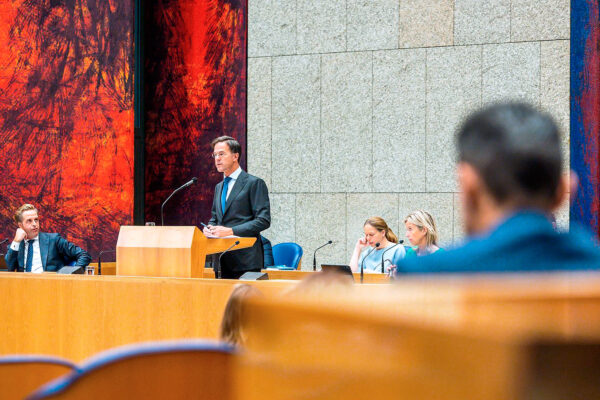
Dutch prime minister Mark Rutte has tendered his government’s resignation to King Willem-Alexander.
With only two months to go before elections, and the government remaining in a caretaker capacity to manage the coronavirus crisis, the resignation is largely symbolic.
But smaller parties in Rutte’s coalition felt they had to take responsibility for what an inquiry described as an “unprecedented injustice” in the tax service, which wrongly accused more than 20,000 families of fraud.
Lodewijk Asscher, who was the responsible minister in charge of social affairs in the last government, stepped down as leader of the now-opposition Labor Party on Thursday.
Child benefits
A panel commissioned by parliament reported last month that “fundamental principles of the rule of law” had been violated by tax authorities when they falsely accused parents, many of immigrant descent, of cheating on their child-care benefits for often simple administrative errors, such as incorrectly filling out a form or omitting a signature.
Families were ordered to pay back tens of thousands of euros and denied their right to appeal.
Some 11,000 dual-nationality families were singled out for scrutiny in the wake of the so-called Bulgarian fraud, in which Bulgarians collected health and rental subsidies they were not entitled to by registering in the Netherlands.
In an overzealous attempt to prevent a similar fraud, tax authorities lost all sense of “nuance”, according to investigators.
The government has set aside more than €500 million in compensation, about €30,000 per family.
Responsibility
The government, parliament, civil servants and judges share responsibility for the scandal, according to the inquiry.
Laws meant to prevent a repeat of the Bulgarian fraud gave tax authorities and judges almost no discretion to decide cases on an individual basis.
What little discretion they did have, they didn’t use.
What’s next?
Elections were already due on March 17.
The government stays on in a caretaker capacity, which means it cannot make policy on major issues.
The exception will be the coronavirus pandemic. The government is rolling out vaccinations and has ordered all nonessential businesses to close. It is considering a nighttime curfew.
The benefits scandal doesn’t look to have a major impact on the polls. Rutte’s center-right liberal party (of which I am a member) is faraway in first place with 26-28 percent support, following by the far-right Freedom Party at 12-14 percent and the ruling Christian Democrats at 11-13 percent.
The other two parties in the government, the left-liberal D66 and socially conservative Christian Union, are polling at 8-10 and 4-5 percent, respectively.
The three left-wing opposition parties — Labor, Greens, Socialists — are polling at between 6 and 8 percent support each.
The next government is likely to be another four-party coalition.
All the major political parties agree the Netherlands’ sprawling system of child, health-insurance and rental subsidies, currently managed by the tax agency, needs to be overhauled. Options include converting benefits into tax credits, making health insurance cheaper and child care free.
